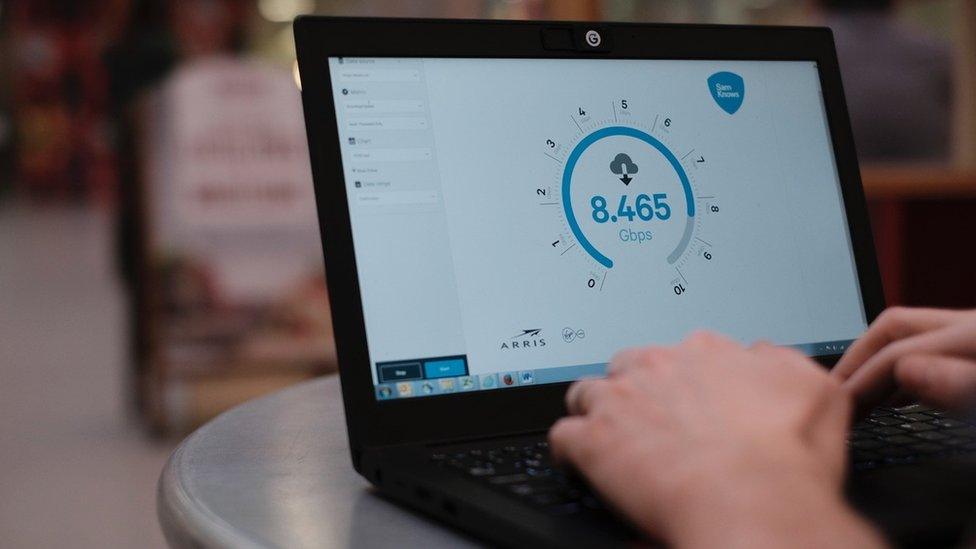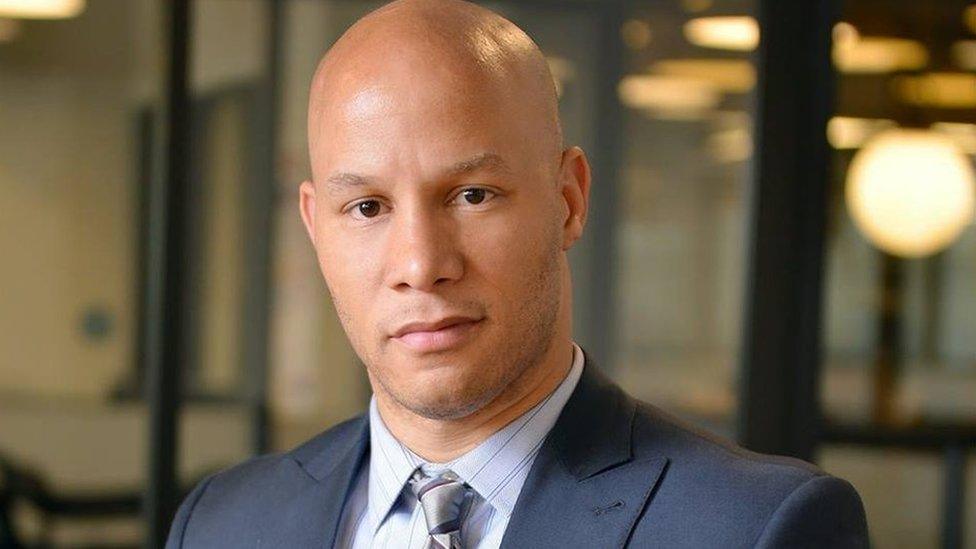Virgin Media tests 8Gbps broadband
- Published
- comments

The speed test was verified by testing service Sam Knows
A handful of homes in Cambridgeshire have tested broadband speeds of 8Gbps, as part of a trial by Virgin Media.
Currently only eight households, in the village of Papworth, are involved in the trial but Virgin Media hopes to extend this to 50 over time.
The technology it uses, ethernet passive optical network, offers the same speeds for downloads and uploads.
One analyst said it was important that fibre operators future-proofed networks and ensured there was enough capacity.
Speeds of 8Gbps would allow users to:
download a high-definition film of 5GB in five seconds
download an ultra-high definition 4k film of 20GB in 20 seconds
download a video game of 99GB in less than two minutes
upload 300 high resolution photos totalling 3GB in three seconds
"With the volume of our customers' internet usage almost doubling every year, trials like this will ensure we have the capability to meet the demand of data-hungry services in the future - be that over cable or full fibre," said Richard Sinclair, executive director of connectivity at Virgin Media.
He added that the trial was aiming to look ahead "to the next decade and beyond".
Fibre frenzy
Independent telecoms analyst Paolo Pescatore is not convinced there is an appetite for such speeds quite yet.
"There has been something of a fibre frenzy recently and there is a clear argument to upgrade to fibre but will people notice the difference [between 1Gbps and 5Gbps]?" he asked.
That said, it was important that all providers found ways to future-proof their networks, Mr Pescatore said.
"It is a natural progression for Virgin Media to extend its network and allow more speed and capacity and this used existing infrastructure so it did not need to dig up roads," he said.
"Providers need to be smart about their investments."

As households use more gadgets, the demand for higher speed links grows too
Virgin Media's network in the UK currently passes more than 14 million premises, using a combination of cable and fibre-optic.
The company has been criticised by some for failing to address the digital divide and concentrating its network in more profitable towns and cities, rather than extending it out to more rural areas.
Last year, it teamed up with Need4Speed to roll out ultra-fast services to 4,000 premises in the Test Valley, in Hampshire, but has admitted it is unlikely to reach very rural areas.
Rival BT, which relies on its old copper network to carry many of its broadband connections from street cabinets to consumers' homes, has promised full-fibre connections to three million homes by 2020. Of those, 70,000 will be in rural areas.
In February last year, another fast fibre company, Hyperoptic, tested speeds of up to 10Gbps in a home in east London, which it says is the fastest in the UK using an existing network rather than a dedicated line.
- Published22 January 2019

- Published15 January 2019

- Published28 January 2020
